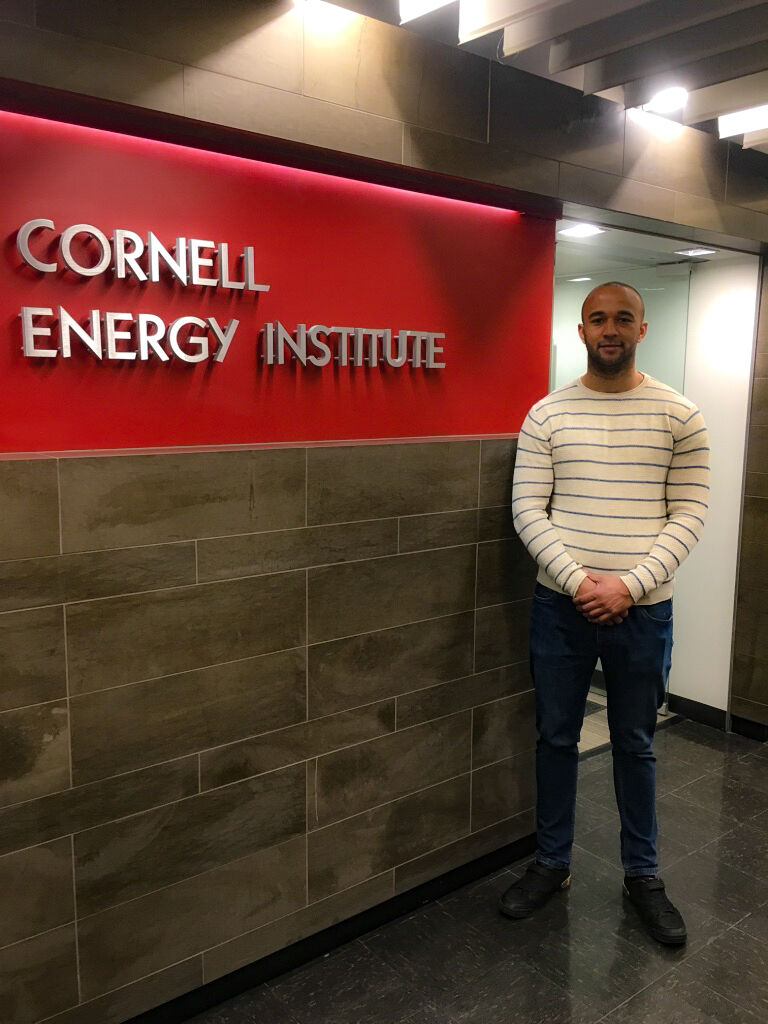Cornell Exchange 2017
An in depth interview with ISE graduate student Jordon Grant on his exchange to Cornell University
REYKJAVIK, April 15 - Earlier this semester, ISE graduate student Jordon Grant was selected to go on exchange to Cornell University, one of our partner universities. Jordon, originally from Manchester, England, came to Iceland to study geothermal energy as an extension of his past experience in drilling operations with oil and gas.
 As his program progressed however, Jordon found increasing passion in power systems engineering, which crossed over with his previous experience in electrical engineering. With his diverse background and curiosity in new topics, Jordon jumped on the opportunity when hearing about the Cornell exchange.
As his program progressed however, Jordon found increasing passion in power systems engineering, which crossed over with his previous experience in electrical engineering. With his diverse background and curiosity in new topics, Jordon jumped on the opportunity when hearing about the Cornell exchange.
Once his application had been accepted, Jordon made the necessary arrangements to accommodate the trip. As it happened, his situation was particularly tricky. In order to continue his intensive specialization in power systems engineering at ISE, Jordon needed to take courses in Iceland while being in Ithaca, NY. Jordon took the initiative, spoke to his professors and made it happen.
The exchange was with Cornell's Energy Institute, a research center heavily focused on tackling sustainability challenges with innovative research and education. Jordon's studies focused on Energy Storage Systems and Energy Transportation Systems. Coming primarily from a drilling and electrical background, Jordon found the first few classes difficult to adjust to.
As the semester progressed, Jordon got into his rhythm and went out and enjoyed the social scene. As he recalls, the campus had numerous facilities and many sports matches he could attend. Jordon made friends with others at the energy institute, noting that he was the only masters student there.At first, it was a struggle to deal with such intense chemistry. We were running through the fundamentals of energy storage and while the class was doing advanced work, I was still on YouTube learning the basics from Crash Course. It was hard, but I eventually caught up and was able to understand the details myself. The course went into a number of systems. Anything from batteries, to hydrogen fuel cells - both from a chemical perspective - to more mechanical systems, which I'm used to, such as compressed air energy storage or flywheels. All of the work we did was quantitative so you really needed to know what you're doing in order to do the calculations. We even went into what materials to use based on physical properties such as tensile strength. Later on we studied energy transport systems. We covered basic models of traffic flow and the economics of these issues as well, such as what kind of a toll could reflect the social cost of congestion. It's topics you wouldn't otherwise think of. We also discussed electric vehicles and how that transition might work out and even autonomous vehicles and their implications.
Outside of classes, Jordon found mentorship in Professor Jeff W. Tester, a chemical engineer and lead author of Sustainable Energy, Choosing Among Options.At Cornell I had my own office and was the only masters student there - everyone one else was at least a PhD student. The people were great and I made a lot of connections. It was good to see what everyone was doing and stay in the loop. Every Tuesday some one would present their work and buy pizza for the office. I did mine on drilling and well-logging and it seemed well received. This is why I came back to school, to be part of this kind of environment with others on the same wavelength as me. It's refreshing.
Coming back, Jordon is continuing his studies at the Iceland School of Energy. When asked what was his biggest take-away from the exchange was, he replied:It was good to speak with Jeff - I got some career advice moving forward. We started talking about industry and he was interested in what I've worked on in the past. Up until that point I was wondering to myself, "will I continue to work in drilling? Will I work in electrical?" Jeff kept pushing me towards geothermal, hinting I could make more of an impact with my particular skill set. I ended up getting quite a few contacts as well. I'm still struggling with this but I know I'll need to pick what grabs me and I'm passionate about. Once I have that, I'll stick to it for 20 years.
Jordon hopes to focus his thesis so that it is in line with his power systems specialization.I learned I really can learn an apply myself to topics I've never done before. I've always put myself in a box and say to myself "I've done this, and this is what I can do." Coming back I've realized that I can do anything I set my mind to.
